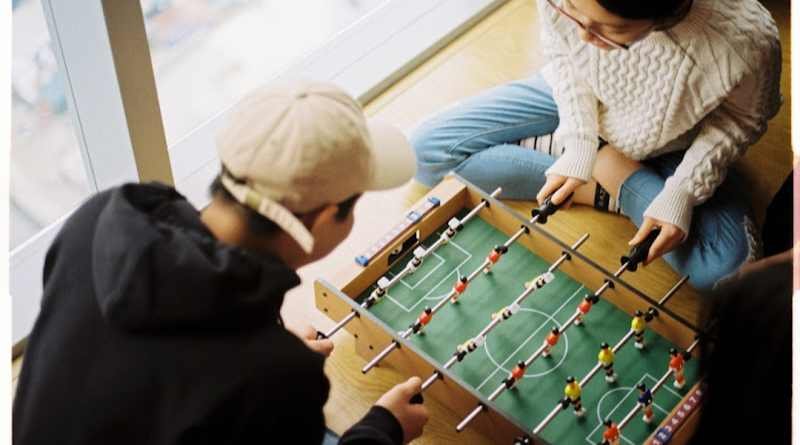Embarking on college life can be as exhilarating as it is daunting. Freshmen are challenged to melding rigorous academic demands with novel social life experiences and personal growth. This delicate dance between maintaining grades and embracing the vibrancy of campus life calls for a strategy that can ensure success without compromising on the joys of youth. Tapping into proven techniques for scholarly excellence, wise time management, and social integration can set the tone for a fulfilling college journey. Keep reading to unlock the secrets to a balanced and rewarding freshman year.
Acing Academics: Strategies for Effective Studying and Exam Preparation

Transitioning into college demands a strategic academic approach, balancing coursework and leisure. College freshmen often find themselves overwhelmed by the sudden necessity to manage their own study schedules without the structured environment of high school. It’s vital that they establish a robust routine early on, allocating ample time for counselors for college admission both revision and relaxation, to prevent burnout and solidify knowledge.
Effective studying is more than just reading textbooks; it involves engaging with the material on multiple levels. Interactive learning methods, such as group discussions or teaching a topic to a peer, can enhance understanding and retention. Freshmen should seek to integrate such practices into their study habits to encourage active learning and create a dynamic educational experience.
As exams approach, time management becomes an increasingly precious skill. Students are encouraged to break down their material into manageable sections and prioritize based on urgency and difficulty. Successfully navigating through finals requires a strategic plan that covers all topics and allows time for restorative breaks to refresh the mind.
Amidst the rigorous academic demands, students must not lose sight of the significance of self-care and relaxation. Scheduling short intervals for hobbies or exercise can dramatically improve concentration and reduce the stress associated with intense study periods. By striking a salutary balance, freshmen can foster an enjoyable and productive college journey while striving for academic excellence.
Balancing Act: Managing Leisure Time and Academic Responsibilities

The transition to college is marked by newfound freedom and increased academic pressure. Students find themselves at a crossroads where effective time management becomes critical in juggling classroom demands and personal interests. Creating a harmonious balance between study sessions and moments of relaxation is essential for overall well-being. Engaging in activities like sweepstakes casinos can be a delightful reprieve, provided they are enjoyed responsibly and within one’s leisure allotment.
Successful students recognize the significance of structured schedules in navigating their collegiate journey. By prioritizing educational goals, they allocate definite hours for library research and critical writing, ensuring their academic obligations are met with the dedication they demand. Such discipline clears the path for guilt-free enjoyment during downtime.
In the quest for equilibrium, students may discover that relaxation can coexist with investment in learning. Deliberately including casual gaming or social time into the daily routine avoids the potential pitfalls of procrastination. Specifically, being mindful of the time spent on pastimes ensures it doesn’t compromise essential study time or lead to last-minute cram sessions, which can erode the quality of work produced.
Navigating the Social Scene: Making Friends and Building a Support Network
Entering the college environment provides an ideal backdrop for cultivating new friendships and establishing a supportive social network. Freshmen are enveloped in a community of peers, each embarking on similar academic and personal paths, presenting endless opportunities to connect. Students can create a safety net by forging these bonds and providing emotional support and various perspectives on college life.
Active participation in campus events is a proven method for meeting new people and initiating lasting relationships. By attending club meetings, social functions, and community volunteer efforts, freshmen subtly weave themselves into the fabric of university life. This involvement bolsters social connections and enhances the overall collegiate experience.
Creating study groups is a dual-purpose strategy; it encourages academic collaboration while fostering interpersonal relationships. Students find that discussing coursework and exchanging ideas can lead to friendships grounded in shared academic pursuits and mutual growth.
Maintaining open lines of communication and demonstrating genuine interest in others’ experiences are central to establishing deep connections. Freshmen should strive to be attentive listeners and active conversation contributors to nurture relationships that enrich their college journey. These interpersonal skills aid in building a network and developing competencies valuable beyond the university setting.
Altogether, mastering the delicate balance between academic rigor and social engagement is the hallmark of a successful freshman year in college. By implementing effective study strategies, managing leisure time responsibly, and actively participating in campus life, freshmen can embark on a fulfilling journey marked by academic achievement, personal growth, and lasting friendships.

